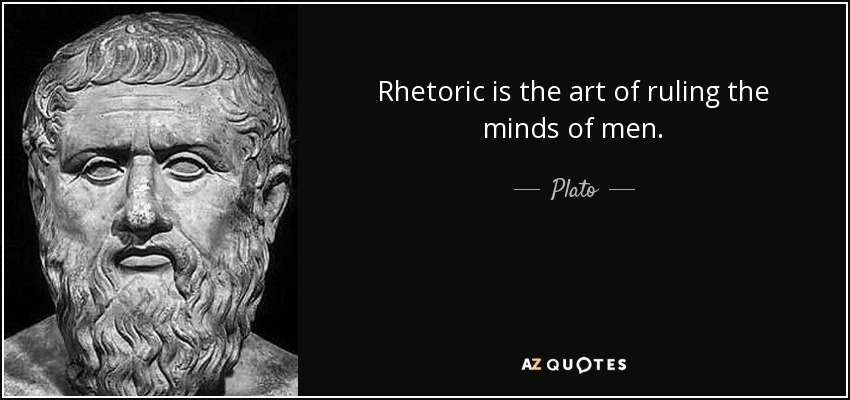“The trouble with Nigeria is simply and squarely a failure of leadership…. The Nigerian Problem is the unwillingness or liability of its leaders to rise to the responsibility; to the challenge of personal example which are the hallmarks of true leadership” – Chinua Achebe (The Trouble with Nigeria)
(A Cursory Reading of ‘Nigeria: A New History of a Turbulent Century’ by Richard Bourne)
In August 2017, a few months after I enrolled for my PhD degree at the University of Ibadan, I got funding from the University’s Postgraduate School to attend the 30th West African Linguistics Conference at the University of Education, Winneba, Ghana. This was my first outing as a budding academic. Little did I know how much that experience will shape my engagement with rhetoric and discourses of power in my work. I find it worthwhile to share some insights that I gained from that platform to shape the ongoing conversations on restructuring in Nigeria and as a retrospect of a book review event I attended at the Ibadan School of Government and Public Policy (ISGPP) that year.
I must say that the experience at Winneba was an exhilarating one, especially for an academic neophyte like me. The conference which was themed Language as an Integration and Development Factor within the West African Region brought together African linguistic experts of indigenous and international extractions in a single room (and sometimes classrooms too), to brainstorm on innovative strategies for preserving African linguistic heritage and scholarship as well as, engage the prospects of deploying language as a medium of development. It was there that idea of political linguistics first resonated in me.
In a paper presentation titled, “Language as Political Metaphor: Deconstructing the Change Mantra in Nigeria’s Political Lexicon”, I argued that flamboyant linguistic lexicons and catch-phrases have been deliberately and derisively misapplied by politicians in their speeches or press interviews to obfuscate the intelligibility of the common man, and thus shield themselves from social accountability and complicity in misgovernance. As was expected, I got a lot of critical feedbacks which got me thinking about re-conceptualizing the paper, and even my doctoral research, along a multidisciplinary plane (as most doctoral students in this 21st Century should do too) but perhaps, most resounding of all was Nancy Henaku’s post-presentation comment about the dialectics of power and hegemony in African political rhetoric, which according to her, situates and structures social relations along particular ethnic, gender and class divides (see works by Foucault, Derrida, Van Dyke and Edelman for early insights on the concepts of discourse and rhetoric). What this means is that the potency of nation-building and development efforts, especially in desperate times such as these when we are confronted with the national question, lies in the sensitivity and viability of our leaders’ body language. Their willingness to not just talk-the-walk, but also temper-the-talk; develop-the-walk; and walk-the-talk will ultimately deliver the anticipated change. Sadly, this remains to be seen in Nigeria.
As I flipped through the pages of Richard Bourne’s classic on Nigeria (Nigeria: A New History of a Turbulent Century published by Zed Books Ltd., republished for Africa by Bookcraft) some two months after my return from the Winneba conference, I felt a wind of nostalgia surge through me and I couldn’t help but ignore the not-to-do list I was working with that day to skim through the 275-page volume that sat comfortably on my palms. Glancing past the glossy cover page, I suspended my sceptic instincts when I read an excerpt of Toyin Falola’s comments on the blurb page. If anyone alive now should say the first thing about Nigeria’s history, it should be him (he’s literally Nigeria history’s living legend), and for him to have talked about the book in such a manner, there must really be something else about Nigeria than (post)colonial historians had told us. I quickly dabbled to the folder I created for African writers on my laptop to cross-reference the book with that of Toyin Falola’s and I sure found something. Bourne’s chronological assortment of landmark events in Nigeria from 1914 to 2015, interspaced by 25 years for each chapter, was a novel attempt at re-imagining the discourse on the 1914 amalgamation that seems to have dominated interventions on Nigeria’s continued corporate existence, in recent times.
In the first chapter, the author opens up conversations about what is known as the ‘1914 amalgamation experiment‘. It was interesting to discover that the key argument for ‘One Nigeria’ according to Fredrick Lugard in a speech he delivered in Lagos (and likely the banalest one) was to provide for a unified railway policy (can you imagine that? and think that Nigeria is yet to have a coherent railway policy, more than a century after), Lord Lugard argues that there was a need for a railway system:
“which will prove, not only a new departure in material prosperity but also that the coming years will increase the individual happiness and freedom from oppression and raise the standard of civilization and comfort of the many millions who inhabit this large country …” (page 3).
This singular event was soon to arouse a cacophony of lies and contradictions in the succeeding period after independence. What really caught my attention in this chapter was the author’s referral to Lugard’s political and linguistic brilliance, who had married a skilled journalist and propagandist – Flora Shaw, and was himself a historian who wrote his own autobiography, deployed his intellectual prowess to advertise his ideology in Northern Nigeria to the natives of Nigeria and the British imperial government. Despite the opposition he faced from educated natives, he still succeeded in entrenching the indirect-rule system, a system “which did not leave traditional structures unchanged’, in the North and parts of the South. When he left office in 1919, Lugard reported to the Parliament that his re-organizational strategies were what brought about the end of slavery, separate despotisms, and peasant injustice in the North; barbarism, witchcraft and fetish worship in the South; as well as indiscriminate killing of twins and primitive savagery in the East, all which were the former hallmarks of pre-colonial Nigeria. Those were the supposed gains of Fredrick Lugard’s restructuring campaign.
Nigeria is now 107 years since the Northern and Southern Protectorates were amalgamated and is yet to hear the last of the restructuring debate. Several political and constitutional *confabs have been convened to arbitrate among the disparate voices dispersed across the 923,700 square kilometres landscape of Nigeria, all to no avail. The bane of the Nigerian tragedy has been linked to the incoherence of her leaders in communicating and delivering their electoral promises. This is not difficult to discern, a simple interrogation of most political aspirants vying for elective offices at each level in Nigeria would reveal the mediocre mindset that has come to characterize our political space. A case in point was a 2014 gubernatorial debate facilitated by the Graduate Students of the Department of Political Science, the University of Ibadan for candidates vying for the governorship position in Oyo State. It was quite interesting to know that not only are most Nigerian, and I dare say African, politicians averse to intellectual debates, they are almost completely at loss on what governance is about (what else can be said of an aspirant that promised to provide ‘ice-cream’ for educational institutions if elected into office? Who does that?). Needless to say, there is no better safeguard to determine the quality of a political aspirant’s proposals for office than the quality of the campaign speeches made by such an aspirant, and except, of course, his/her political antecedents (even this may fail sometimes). That was, perhaps, why a politically inexperienced conservative republican like Donald Trump ‘trumped’ a veteran liberal democrat like Hillary Clinton in the 2016 US Presidential debates. Who would have imagined that ever happening in the United States – a bastion of liberal democracy in the world?
What politicians of the Nigerian ilk should probably do before setting the agenda for restructuring the country is to undergo rigorous training in public policy analysis and development communication at a specialised institution focused almost exclusively on governance and policy education. Doing that might serve the dual benefits of re-orientating the political class on the dynamics of leading political transformations in a transition economy such as ours, and help them leverage politics to create a conducive ambience for trans-regional dialogues on national unity and development. Without this, it would be unrealistic, to put in the words of Richard Bourne, to suppose that a change of government alone would have any miraculous result for Nigeria.
As Nigerian politicians justle for power ahead of 2023, it is high time they move beyond highfalutin rhetoric and crass mediocrity, at least for once in Nigeria’s post-transition history
*confabs refer to the 1994/1995 Constitutional Conference and the 2014 National Conference
You can read a more detailed review of the book by LSE’s Bronwen Manby here
You can follow my essays and blog posts here

